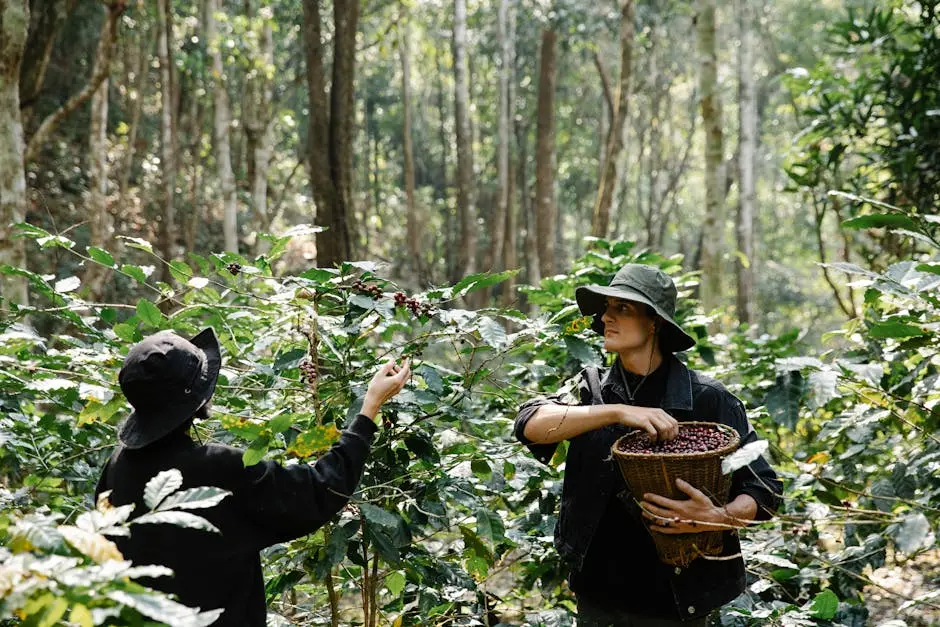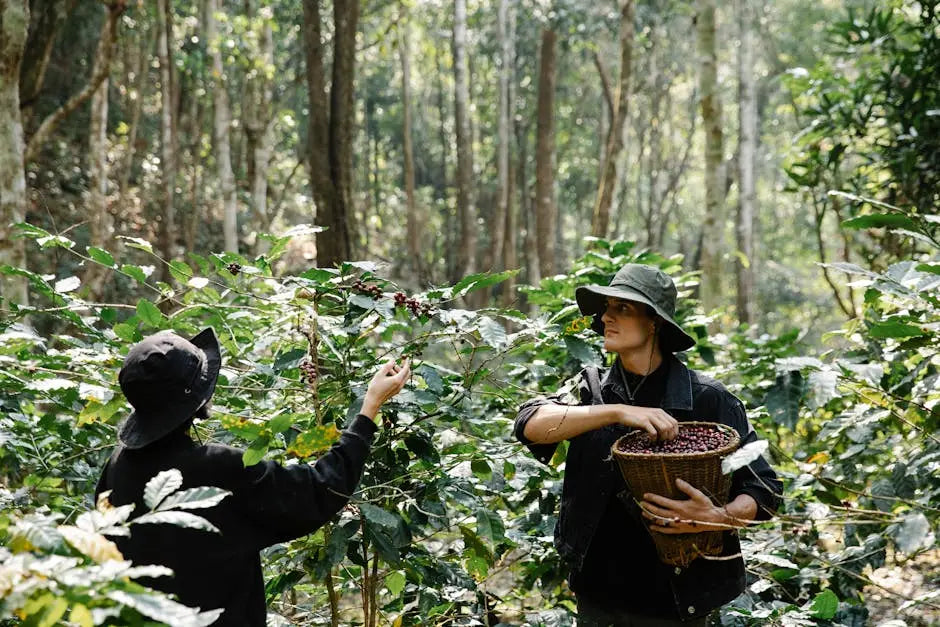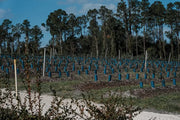Direct trade coffee has become a buzzword in the world of specialty coffee, often associated with premium pricing and high-quality brews. But what exactly does ‘direct trade’ mean, and why are consumers willing to pay more for it? In this blog, we will explore the true cost of direct trade coffee, breaking down the ethical, environmental, and economic factors that contribute to its price. Understanding these components will reveal why investing in direct trade coffee is not just a choice for taste, but also a commitment to sustainability and fair practices.

Understanding Direct Trade Coffee
Direct trade coffee is a methodology that has gained significant traction in the specialty coffee industry. This approach essentially eliminates middlemen by establishing a direct purchasing relationship between consumers and coffee producers, ensuring that farmers receive a fair price for their product. Unlike traditional trade models that can often be convoluted, direct trade fosters transparency which, in turn, builds trust between parties.
The unique aspect of direct trade coffee is that it prioritizes quality and relationship over mere pricing. With this model, buyers often visit farms and engage directly with farmers, enabling them to establish a deeper understanding of the cultivation process. This close proximity not only leads to higher-quality beans but also ensures that farmers’ needs are directly addressed, creating mutual benefits.
Ultimately, consumers are willing to pay a premium for direct trade coffee because they recognize that their dollars support not just the purchase of coffee but also the livelihoods of farmers. By understanding the direct connection between price and evaluation, coffee lovers can enjoy their brews with the knowledge that they are part of a larger movement towards ethical consumption.
The Difference Between Direct Trade and Fair Trade
While both direct trade and fair trade seek to promote better conditions for coffee growers, the approaches differ significantly. Fair trade is a certification program designed to guarantee farmers a minimum price, along with access to premium markets. On the other hand, direct trade coffee is not bound by specific regulations but seeks to ensure that farmers receive higher compensation by cutting out intermediaries.
In a fair trade model, coffee is often sold to cooperatives, which then negotiate on behalf of the farmers. Conversely, direct trade coffee allows for personalization and deeper connections between buyers and sellers. This dynamic often fosters goodwill and collaboration, as buyers get to know the challenges that farmers face firsthand. Furthermore, the absence of a certification process for direct trade allows for more flexibility in pricing and product offerings.
In essence, while both approaches promote ethical sourcing and farmer empowerment, direct trade coffee tends to place a greater emphasis on individual relationships and the nuances of quality. It champions a community-centric philosophy where coffee quality and farmer welfare go hand in hand, ultimately creating a richer experience for consumers.
Quality Over Quantity: Why Direct Trade Coffee Tastes Better
One of the most compelling reasons to invest in direct trade coffee is undoubtedly the superior flavor profile it offers. The meticulous care in selecting the beans, coupled with the commitment of farmers, results in a coffee that is not only fresher but also richer in taste. Direct trade coffee producers are often willing to invest in the best agricultural practices, ensuring that they harvest the highest quality beans possible.
Unlike mass-produced coffee which may undergo a homogenization process for uniform taste, direct trade coffee is often sourced from unique micro-lots. These special lots represent specific regions or farms and showcase the distinctive flavors tied to particular terroirs. When you sip on a cup of direct trade coffee, you are not just enjoying a beverage; you are experiencing the essence of the land from which it originates, often revealing intriguing complexities and notes.
In tasting events, coffee enthusiasts often notice the contrast between direct trade offerings and their conventional counterparts. The freshness, unique aroma, and rich body of direct trade coffee can elevate even the simplest morning rituals to an exquisite experience. As consumers become more discerning in their coffee choices, the demand for high-quality, ethically sourced varieties will continue to rise, further propelling the growth of direct trade practices in the industry.
The Economic Impact of Direct Trade Practices
Direct trade coffee has far-reaching economic implications that extend beyond the individual farmer to entire communities. When farmers are paid fairly for their products, they gain the ability to invest in their land, education, and health. Improved economic conditions empower coffee-growing families, resulting in better living standards and opportunities for future generations.
Moreover, as direct trade coffee gains popularity among consumers, farmers are incentivized to cultivate better quality beans. This effectively raises the benchmark for quality in the coffee market, encouraging a focus on sustainability and high standards. The economic model takes a reciprocal approach; consumers benefit from exceptional coffee, while farmers reallocate resources to improve quality and yield.
In many cases, the economic benefits of direct trade also extend to local communities. As farmers flourish, they can contribute to local projects and initiatives, creating a positive feedback loop that encourages social and economic development. These benefits often cascade into improved infrastructure, healthcare services, and educational opportunities for the families and children involved in coffee farming.
Environmental Sustainability in Direct Trade Coffee
The relationship between direct trade coffee and environmental sustainability is intrinsically linked. Many direct trade coffee producers adopt eco-friendly farming practices which prioritize the health of the land and ecosystem. From implementing shade-grown coffee cultivation to minimizing pesticide use, these methods not only enhance coffee quality but also promote biodiversity.
Moreover, direct trade relationships often give rise to environmental education programs for farmers, equipping them with the skills and knowledge needed to implement sustainable practices. This makes a significant difference not only in the quality of the coffee crop but also in the preservation of land for future generations. Consumers, in turn, can feel good knowing that their choices support environmentally responsible farming.
As the coffee industry begins to reckon with the adverse effects of climate change and unsustainable farming practices, direct trade coffee stands out as a sustainable alternative. By cultivating coffee in harmony with the environment, not only is quality preserved, but the process leaves a lighter footprint on our planet. This sustainable approach aligns closely with the values of many consumers who are increasingly aware of their environmental impact.
Supporting Farmers: The Human Element of Direct Trade
At the heart of direct trade coffee is the fundamental recognition of the people behind the product. Every cup of coffee is a testament to the hard work and dedication of farmers who pour their lives into cultivating the beans. By choosing direct trade coffee, consumers foster direct relationships that celebrate the artisanship of these producers. It creates a more personal narrative around coffee consumption.
Moreover, supporting direct trade practices allows farmers to receive a higher percentage of the sale price—often as much as 70-80%. Such financial recognition enables them to achieve financial independence and invest in their communities, thereby improving social conditions for all. The human element becomes even more apparent when consumers understand that their coffee purchase can change lives.
Beyond economic benefits, the emotional and social impacts are profound. Many farmers express genuine gratitude and joy when consumers support their product, leading to a mutually beneficial relationship. This creates a community of understanding, respect, and appreciation in an industry where the human element is often overshadowed. In the end, every sip of direct trade coffee tells a story—one of perseverance, resilience, and commitment.
Debunking Myths: The Real Costs of Direct Trade Coffee
One of the most common misconceptions surrounding direct trade coffee is that it is unaffordable for the average consumer. While direct trade coffee can be more expensive than mass-produced alternatives, the difference is often justified by quality, ethical sourcing, and environmental sustainability. The belief that a higher price tag translates to poor accessibility fails to consider the broader implications of what our spending habits mean.
Another myth is that direct trade coffee places an enormous burden on farmers, pushing them to adhere to standards that are difficult to maintain. In fact, the direct trade model is designed to empower farmers, allowing them the flexibility to negotiate prices and engage in practices that suit their land and resources. The empowerment aspects of direct trade create a more equitable supply chain, benefiting both producers and consumers.
Furthermore, skeptics argue that the direct trade model may not align with global coffee needs or availability. However, as more consumers recognize the value of quality over quantity, demand for direct trade coffee is steadily increasing. This evolving landscape allows for greater acceptance of ethical practices, ultimately leading to a more sustainable coffee culture. As more consumers choose to invest in direct trade coffee, they are not just buying a product; they are making a conscious decision for a greater good.
Investing in Quality and Ethics
In summary, the true cost of direct trade coffee extends far beyond its price tag. It embodies a commitment to fair trade practices, sustainable agricultural methods, and the empowerment of coffee farmers. While the initial purchase may seem steep, the benefits of supporting direct trade coffee resonate throughout the entire supply chain, fostering a more ethical and sustainable coffee industry. As consumers, choosing direct trade coffee means prioritizing quality, ethical sourcing, and social responsibility. The next time you reach for your cup of coffee, remember the story behind it and know that every penny spent is a step toward a better future for farmers and the environment.








